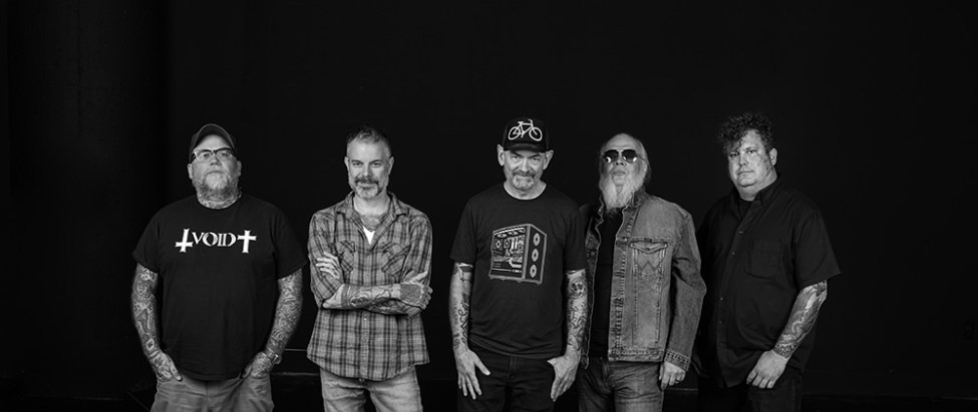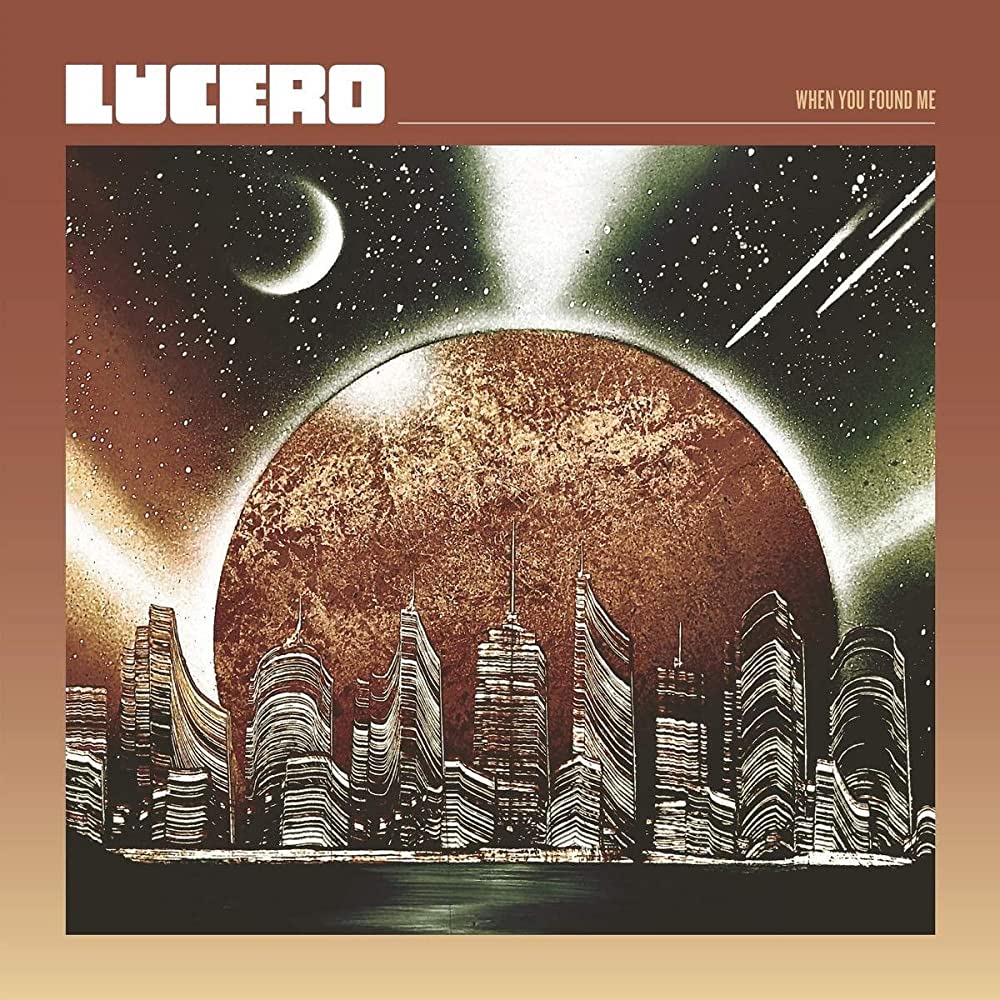
Learning the Hard Way With Lucero

This column is a reprint from Unwinnable Monthly #164. If you like what you see, grab the magazine for less than ten dollars, or subscribe and get all future magazines for half price.
———
Ruminations on the power of the riff.
———
The last time I saw Lucero, back in late 2021, frontman Ben Nichols paused in the middle of playing “My Best Girl” and said with a laugh, “This song is so stupid.” It’s a classic in the band’s catalog from their 2001 self-titled debut full-length, one that is endearing in its naivety, and as an early snapshot of a moment in time for the beloved punk-inflected countrified rock and roll band. For a married man in his 40s, it’s also understandable that singing about how the only woman he can trust is his guitar might feel like stumbling across a 20-year-old diary entry and choosing to read it out loud instead of burning the pages like you only wish you could.
While not everything about that particular track has aged well, to give credit where its due, Nichols looked remarkably clean-cut and in good health (which is more than many of us could say back when live music was slowly returning after the lockdown phase of the pandemic). At one point I turned to a friend of mine and wondered whether he’d quit drinking, to which my friend responded that Nichols had been sipping on what appeared to be a full pint glass of straight whiskey (notably, they played in a venue attached to a brewery, where he probably could have just gotten a beer). We never did get confirmation on what was in his glass, but I think I like that version of the story best.

Whether that detail is fully accurate or not, it fits the band’s narrative well enough to feel like it could be true. Lucero’s music has always had two speeds: “I’m going to party hard” and “I shouldn’t have partied that hard.” From the beginning of the band’s catalog to now, Nichols’ lyrics tend to bounce between triumph and defeat, telling tales of living fast and dealing with the consequences. When their 2018 record Among The Ghosts carried a mostly somber vibe without as much of the hard-rocking counterbalance that fans have been become accustomed to, it seemed to me at the time that maybe Lucero had finally mellowed out and gotten onto some real “I need to get my life together” energy.
Seeing the band in good spirits and touring on what was then their latest record, 2021’s comparatively more energetic When You Found Me, felt like a reassurance that a band I had grown up with, one of the most consistent staples in my musical diet, was in no danger of losing their edge. There was once a stretch during a pivotal period of my life where at least half their catalog had become the regular soundtrack to wild nights out (and subsequently wondering what the hell I was doing my life). The band’s songs are simple, rarely comprised of much more than a few chords, some tasteful lead lines, and Nichols’ smoky voice, but witnessing what felt like a return to form marked the moment where I felt, for the first time in nearly two years, like things might go back to something resembling normalcy.

Indeed, Lucero have long been masters of concision. Whether that’s a byproduct of creative intent or technical limitations is open to speculation; guitarist Brian Venable once told Premier Guitar that when he joined the band and they wrote their first song, it was the only song he knew how to play. With that said, if there’s anything I’ve learned from years of playing music, it’s that writing something simple is often much more difficult than writing something complicated. You can always add more parts to a piece, but a skilled editor knows what to subtract so every note maximally contributes to the song.
Some bands get more concise with age, learning how to whittle down a song into just a few parts that work well together, rather than shoving every idea they have into each track. Others lean into grandiosity, leveraging improved musicianship to craft sounds that reach beyond the constraints of their capabilities. Over the course of 11 studio albums (and a smattering of EPs and live recordings), Lucero have always kept things concise, polishing their craft incrementally, at times leaning more into country or rock and roll but never taking massive swings that would belie who they are.

This isn’t to say that Lucero hasn’t matured musically or lyrically since starting the band much earlier in their youth. On their latest record, the recently released Should’ve Learned By Now, it seems like they’re still dealing with the same shit as ever. There are songs about arguments with exes and hard-partying nights out on the town. But what’s changed between now and back when Nichols was proclaiming his love to his guitar because “she don’t care if I come home late” is that he’s a little bit wiser and better able to deal when things aren’t going your way (and when you have no one else to blame).
For the most part, Should’ve Learned By Now sounds like a Lucero record, and if you’ve heard at least one of their other albums, you likely have a strong sense of what to expect here. The line “The hurricane makes landfall and they serve another round” off second track “Macon If We Make It” might be one of my favorite Lucero lyrics across their entire catalog just for how well it tells a complete story in a single sentence, setting a scene where your imagination can fill in all the details. It’s the kind of line you could spend a career learning how to write and Nichols makes it feel routine.
Should’ve Learned By Now might just be another Lucero record to some. Barring something catastrophic, it certainly doesn’t seem like it’ll be the last we hear from Nichols and crew either. But for longtime listeners, or at least for myself, it’s landing a little bit different. There’s a reflective tone in Nichols’ words (particularly on tracks like “Nothing’s Alright”) that feels wistful and knowing as he’s looking back on his life, and by extension, looking back at all the stories he’s been telling us for decades.
Listening along, I feel like I’m looking back at all the moments I’ve attached to those stories myself, connecting with the feeling of reflecting on learning life lessons the hard way, if not the specific substance of these songs themselves. It feels like looking back at the first time I really felt one of these songs hit me in the chest and seeing how far I’ve come since then. That’s the kind of connection that keeps you from cringing at lines like “the only girl a boy can trust is his guitar” because doing so would really mean cringing at yourself. Lucero have come a long way, and for those of us who feel like we’ve grown up on these songs, so have we all. Together.
———
Ben Sailer is a writer based out of Fargo, ND, where he survives the cold with his wife and dog. His writing also regularly appears in New Noise Magazine.




